Staff Picks: Books of the Year 2016—Chosen by Verso


Fiction
Go Tell It On The Mountain by James Baldwin Penguin, 2001 [1953])
Baldwin's semi-autobiographical first novel was published in 1953 and is full of the brightest array of lived contradictions. Fourteen year-old John Grimes lusts after Elisha, his senior by a few years and leader in his local Pentecostal congregation. John knows that this is a terrible desire, as he is set to become a preacher, just as Baldwin was at his age. Yet by likening the physicality of worship to that of sexual exertion, Baldwin offers a curious mix of criticality and wonderment—criticality towards Biblical distinctions between spirit and flesh, and wonderment at the power of worship and vision. The novel's final section, 'The Threshing-Floor,' brings these opposing sentiments to the fore, describing the terrifying hallucinatory journey that John must take to be saved, and then the beautiful salvation as he glimpses the Lord Himself.
Human Acts by Han Kang translated by Deborah Smith (Portobello, 2016)
Human Acts is the second novel by Korean author Han Kang to be translated into English by Deborah Smith — their first collaboration, The Vegetarian, won the Man Booker International Prize this year. Human Acts is an extraordinary exploration of violence and humanity, beginning with the events of the Gwangju Uprising and following its echoes into the present day.
“Neither inviting nor shying away from modern-day parallels, Han neatly unpacks the social and political catalysts behind the massacre and maps its lengthy, toxic fallout. [It] is remarkable... how she accomplishes this while still making it a novel of blood and bone. Han prepares us for one of the most important questions of our times: "What is humanity? What do we have to do to keep humanity as one thing and not another?" She never answers, but this act of unflinching witness seems as good a place to start as any.” — Eimear McBride, Guardian
Ladivine by Marie NDiaye translated by Jordan Stump (Maclehose, 2016)
Longlisted for the Man Booker International, Ladivine is a strange, unsettling narrative of transformation and trauma spanning four generations of women.
“It has been said that NDiaye’s work is impossible to decode at the level of either psychology or conventional narrative. Certainly the phantasmagoric atmosphere she creates — diffuse realities and uncertain identities, fractured causality and impossible chronology, a constant movement of regression — suggests that her inspiration lies not in the real world but in nightmares or, more specifically, in the Freudian unconscious. In this view, “Ladivine” is the record of a trauma suffered by the woman who first left that tropical country, a trauma severe enough to haunt succeeding generations. It’s a wild ghost story, rooted in immigration and exile.” — New York Times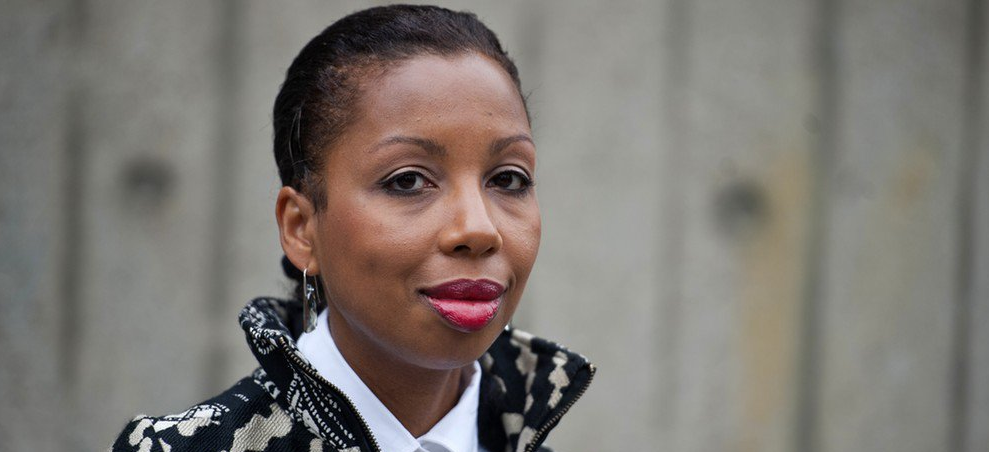
Salammbô by Gustave Flaubert, trans. A. J. Krailsheimer (Penguin, 1977 [1862])
Having finished Salammbô, the book will slip to the floor from your shaking fingers, while in a broken voice you wonder aloud, eyes glittering, what just happened to your brain. Set in Carthage during the aftermath of the First Punic War, the novel tells the story of the ensuing mercenary uprising against the city. That’s all you really need to know, because a plot summary couldn’t possibly do justice to this wild product of an untrammeled imagination. Every chapter is a fresh apocalypse, a beautiful abomination. Flaubert said artists should be regular and orderly in life to allow for originality and violence in their work. While writing Salammbô, he must have had some serious OCD going on; he must have compiled an inventory of his underwear and planned his meals a month in advance. It’s violently original; originally violent. My head is still spinning.
I Hate the Internet by Jarett Kobek (self-published, 2016)
“Lots of Egyptians talked to J. Karacehennem about the protests. Many had been in the protests. No one mentioned Facebook. No one mentioned Twitter. Mostly people talked about money and how they had none.”
This is a savage novel that takes aim at the horrors of the internet and social media and the bullshit that surrounds it. At times, Kobek has the surreal flamboyance and repetitive humour of Stewart Home (and he has appeared in Home’s series for Bookworks) at other times he’s razor sharp on the flaccid class politics, the disgusting misogyny, the relentless racism and the flatulent egos that stalk the electronic ether. And it’s very, very funny.
One of the most perfectly timed satires that I have come across for years. It is Catch 22 for everyone stuck on the Googlebus.
The Lesser Bohemians by Eimear McBride (Faber, 2016)
Eimear McBride follows up her astounding first novel A Girl Is a Half-formed Thing with a coming-of-age story about an Irish drama student in London. "She has now given us two novels in which language falls apart under the pressure of sex. And violence” — Jacqueline Rose, LRB
Eileen: A Novel by Ottessa Moshfegh (Vintage, 2016)
“I hated almost everything,” Eileen tells us, in the opening pages of this book. “I was very unhappy and angry all the time.” It sets the tone of this unsettling novel, exploring the mind of an unhappy young woman in New England in the 1960s.
This book is so clever; the building of suspense is slow and deliberate and unnerving, the characters are dark (and terrifyingly real), there are so many creepy possibilities for disaster created that - whilst you're certain something bad is going to happen - you're never sure what direction it might take. Brilliant.
Vital Signs by Tessa McWatt (William Heinemann, 2012)
A tale of grief, guilt, loss, the inadequacy and surplus of language, and the fictions we tell about ourselves and our loved ones.
Seeing Red by Lina Meruane translated by Megan McDowell (Deep Vellum, 2016)
A writer’s eyes begin to fail her in New York in this viscerally hypnotic English language debut that meshes autobiography and fiction.
Grief is the Thing with Feathers by Max Porter (Faber, 2015)
Max Porter has gone from strength to strength since his genre-transcending debut was published last year. His astonishingly original experiment with genre – part novella, part essay and poetic fable –deservedly won a string of prizes, including the International Dylan Thomas Prize 2016; most recently Porter was named young writer of the year. Though the project was inspired by Ted Hughes’s Crow, written after Sylvia Plath's death, Porter's beautiful rumination on loss, love and finding a way through takes flight to become it's own adventure (in other words, you don't have to like Hughes to be profoundly moved by this book).
My Name is Lucy Barton (Viking, 2016) by Elizabeth Strout
This is a novel about a young woman's time in hospital during which she receives an unexpected visit from her mother, catapulting her back to a distant and disturbing past. Throughout the book a lurking darkness construes a deep sense of loneliness and fear, and reading My Name is Lucy Barton, one has the feeling that a tremendous chasm might open up and swallow up its narrator. From her memories of growing up poor and isolated in a small town in Illinois, to the unfolding of her complex relationship with her mother, Lucy Barton describes her life with poignant candidness. Strout is so spare and adept with her prose that one might be tempted to rush through this short novel in a few hours—which would be a shame: My Name is Lucy Barton deserves to be savoured, in all of its sad and weighty brilliance.
The Underground Railroad by Colson Whitehead (Doubleday, 2016)
A thrilling and beautifully written story about escaping from slavery via the extensive and terrifyingly dangerous underground railroad network.
"Cora’s strong, graceful hands touch on the greatest tragedies of our history, as the train’s different destinations call to mind Roman crucifixions, The Diary of Anne Frank, the horrors of Auschwitz, as well as a golden age of art, poetry and majesty. The terror and the beauty rise and ebb, but they both produce echoes. Mostly Whitehead tells the untold stories of, as the title of WEB Du Bois’s seminal essay collection puts it, The Souls of Black Folk.” — Guardian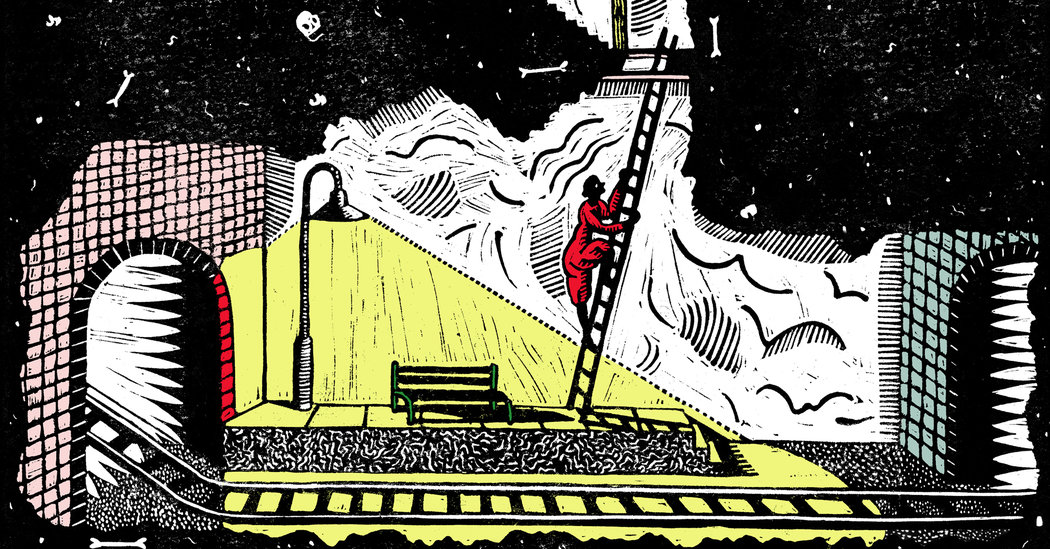
Double Negative by Ivan Vladislavić (And Other Stories, 2013)
Written to accompany David Goldblatt’s photography exhibition, TJ — which stands for Transvaal, Johannesburg — vestigial letters describing the apartheid-era city. Nothing much happens in the novel, although things do change. There are missives gone missing, photographs forgotten or never taken in the first place, small details that color in minor shades. A beautiful blend of essay and fiction that dwells on history, identity, and craft, it’s a bildungsroman that doesn’t halt with the coming of age, but lingers into memory and traces of the past as they persist or fade away.
Politics and theory:
Marx at the Margins: On Nationalism, Ethnicity, and Non-Western Societies by Kevin Anderson (University of Chicago Press 2016 [2010])
Here Kevin Anderson uncovers some of the neglected texts by Marx, including journalism for the New York Tribune, presenting us with a Marx at odds with conventional interpretation.
The Anthropocene or the Capitalocene? by Elmar Altvater et al. (PM Press, 2016)
This collection of writings is edited by Verso author and distinguished scholar of world-ecology, Jason W Moore (Capitalism in the Web of Life, 2015), in which different contributors answer the question of how do we make sense of the extraordinary transition into this era of unprecedented turbulence in humanity’s relationship in, and to, the world. Established voices and younger scholars come together to challenge the conventional practice of dividing changes through history between ‘nature’ and ‘society’, demonstrating the need for a more nuanced and connective view of human environment-making.
Gramsci’s Common Sense: Inequality and Its Narratives by Kate Crehan (Duke University Press, 2016)
Kate Crehan gives us new ways to consider the many forms of structural inequality - including race, gender, sexual orientation, and religion. An approach which presupposes no prior knowledge of Gramsci on the reader, she gives an introduction to his nuanced theory of class beyond economic inequality in the Prison Notebooks, and provides an overview of his notions in relation to thinkers from Bourdieu to Said. Crehan theorises the complex relationships between the experience of inequality in contemporary case studies such as the Occupy Wall Street Movement, forming an accessible introduction to the key Marxist thinker.
An Indigenous Peoples' History of the United States by Roxanne Dunbar-Ortiz (Beacon, 2015)
The first history of the United States told from the perspective of indigenous peoples is essential reading after the events at Standing Rock this year. Dunbar-Ortiz dismantles founding myths of the US to uncover the bloody tracks of settler-colonialism that lead right up into the present day – and provides a powerful alternative history of centuries of Native resistance that precede contemporary movements such as the Dakota Access Pipeline protest led by the Standing Rock Sioux Tribe.
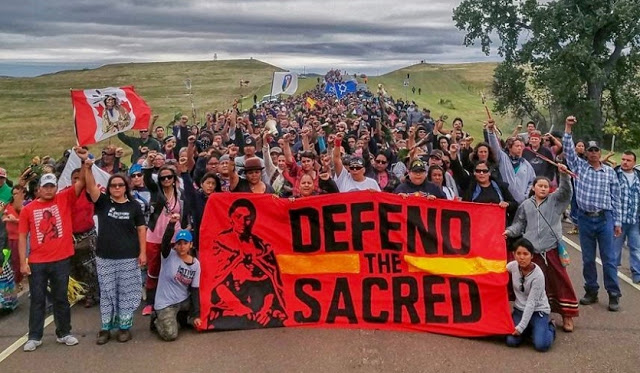
State and Revolution by Vladimir Lenin (Progress Publishers, 1918)
2016 seems like the perfect reason to return once more to this astonishing book, written on the eve of the Bolshevik revolution in Russia 1917. An essential addition to the reading list of any enthusiastic Corbynista, if only to have a sense of what the challenges ahead will be, even in the best case scenario.
The Politics of Everybody: Feminism, Queer Theory and Marxism and the Intersection by Holly Lewis (Zed, 2016)
Lewis boldly calls for a new, materialist queer theory, defining a politics of liberation that is both intersectional, transnational, and grounded in lived experience.
Ecology Without Nature by Timothy Morton (Harvard University Press, 2007)
The soon-to-be Verso author Timothy Morton (Humankind is out in 2017) is a radical and powerful figure in reformulating how we perceive, and respond to, the non-human object. This earlier work frames his original thoughts on ‘environmental writing’ in readings of Romanticism, the period of great influence over how the environment is brought into – and built out of – poetry.
Weapons of Maths Destruction by Cathy O’Neil (Allen Lane, 2016)
A surprisingly political book about algorithms. It shows how inequality and oppression are hardwired into the zeros and ones of much of the systems that is driving our digital society. It is a chastening reminder that who controls the code and who runs the program matters, and that new networks of violence are currently being rolled out without us being able to protest.
Black Liberation and Socialism by Ahmed Shawki (Haymarket, 2005)
A superb primer on the history of American Black radicalism, from slavery and reconstruction through to Du Bois and Garvey, to Martin Luther King, Malcolm X, and the Black Panthers and DRUM. Read this and then go on to: From #BlackLivesMatter to Black Liberation by Keeanga-Yamahtta Taylor.
Platform Capitalism by Nick Srnicek (Polity, 2016)
In many ways a companion to Kobek’s novel, Srnicek (the co-author of Inventing the Future) clears away the obfuscations that shroud any discussion about the economics of the internet. In this succinct book he clarifies why the new internet economy (what he calls platform capitalism) came about, breaks down the different business models (for example, as Kobek suggests, are we doing free labour for Twitter and Facebook when we tweet and post or should we see social media’s exploitation through a more Marxian lens?) and speculates on its future. Essential.
From #Black Lives Matter to Black Liberation by Keeanga Yamahtta-Taylor (Haymarket, 2016)
Keeanga-Yamahtta Taylor takes us through the historical and contemporary ravages of racism and persistence of structural inequality such as mass incarceration and Black unemployment, and argues that this new struggle against police violence holds the potential to reignite a broader push for Black liberation.
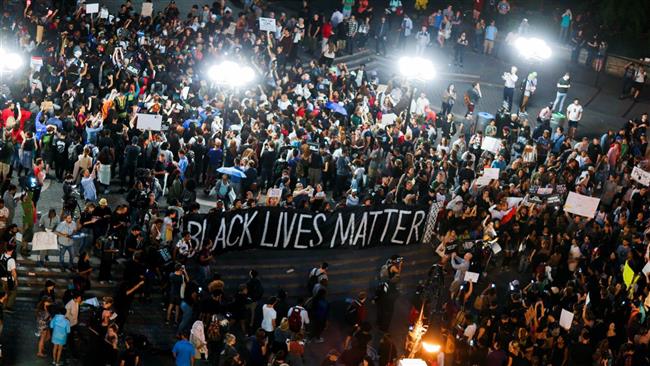
History:
Ardor by Roberto Calasso (Penguin, 2015)
Roberto Calasso is an anomaly in our contemporary world. Not only he co-founded and currently directs Adelphi Edizioni, arguably the single most sophisticated publishing house in the world (after Verso obviously!), but over the course of the past three decades he has created a unique literary world of his own, unfolding between ancient Greek mythology, Kafka, Baudelaire, the Vedas and much more. His 2014 volume Ardor is dedicated specifically to the Vedas, the most ancient texts at the basis of Hinduism and possibly the earliest example of religious metaphysical writing. Calasso discusses the Vedas through the particular angle of the notions of ritual and sacrifice, developing Rene Girard’s intuitions in often surprising and eye-opening directions. Be ready for a full-on, in depth investigation, down to the innermost core not only of the Vedas, but of our very relationship with that layer of reality that at once escapes and sustains our everyday experience of the world.
History of Islamic Philosophy by Henry Corbin (Routledge, 1993)
Not since the time of 12th century Toledo School of Translators, has Europe seen a figure comparable to Henry Corbin. Professor of Islamic studies at the École pratique des hautes études in Paris, Henry Corbin was possibly the greatest modern European scholar of Islamic Philosophy (particularly in its developments in Iran) and an unparalleled bridge between post-medieval Islamic thought and modern Europe. His book History of Islamic Philosophy, first published in 1964,is a unique introduction to the field, as it provides not only a general account of the best known centuries of Islamic philosophy (typically until Averroes), but also an exploration of the ‘theosophy’ that blossomed in the ‘oriental’ part of the Islamic world after the middle ages. A fantastic entry point to Islamic thought, particularly to its most esoteric declinations, this volume is also an introduction to Henry Corbin’s own brand of philosophy. Absolutely a must-have for anybody interested in non-Western thought and philosophy.
Leninism Under Lenin by Marcel Liebman (Merlin Press, 1980)
As we approach the centenary of the Russian revolution, Marcel Liebman’s classic study of Bolshevik leader Vladimir Lenin’s political thought and practice, remains one of the most succinct and thoroughgoing to date. Constantly striking a fine balance between historical partisanship, radical criticism and concrete assessment, this book manages to carefully trace a history that follows the protagonist from marginality and defeat through to mass politics and back into defeat again. Anybody interested in touching base with the Soviet experiment, in the hope of learning lessons for transformative politics today, should definitely read this.
The Garden and the Fire: Heaven and Hell in Islamic Culture by Nerina Rustomji (Columbia University Press, 2008)
Rustomji guides you on an extraordinary journey through the afterworld as it appears in the Qu’ran, Ibn Ishaq’s sira, and the early hadiths. It's full of enchanting and horrific images such as the punishment of the Fire that "will roast an inhabitant until his upper lip retracts to the middle of his head and his lower lip to his navel."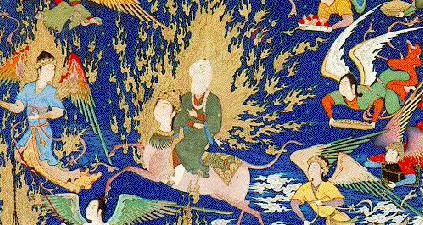
Fatal Purity: Robespierre and the French Revolution by Ruth Scurr (Chatto, 2006)
For serious minds drawn to the study of history and politics, it’s easy to feel superior to the soft, furry genre of historical biography. But the ease of that attitude recommends caution. What better than a biography to help us understand the lived reality of a historical period? Can history mean much at all without that kind of understanding? Without romanticizing or demonizing Robespierre, Scurr presents the Sea-Green Incorruptible as a man whose purity lay in the simplicity of a single unassailable conviction, drawn from Rousseau and affirmed by experience and temperament. He held it that ‘the people’ were not only essentially good but (here’s the fatal bit) incapable of doing wrong. This is a rip-roaring read, a study of an extraordinary individual, as well as a revolutionary history in itself. And the period is something very special. The dawn of the modern era is a time not totally alien to our own; the faces among the historical crowd can be mistaken for our contemporaries, as if the past were only the present in costume. But every now and then something jarring happens, like when Danton, in despair, furiously sets about digging up his dead wife for the sake of one last embrace, and you have to wonder if we, by comparison, are even alive.
Memoir, biography and essays:
Why Look at Animals? by John Berger (Penguin, 2009)
A short but heart aching collection of John Berger’s writing, including a poem, a story, and a closing memoir on the death of Berger’s close friend Ernst Fischer that – if you’re anything like this reader – will move you to tears.
El Olvido Que Seremos by Héctor Abad Faciolince (Seix Barral, 2004); trans: Oblivion: A Memoir translated by Anne McLean and Rosalind Harvey (Farrar, Straus & Giroux, 2012)
The Colombian novelist’s necessary memorial to his father, the physician and public-health specialist Héctor Abad Gómez, who was murdered in the summer of 1987. The work sheds a light on the author and his society, as much as it acts as a portrait of the father and his services as a doctor and activist, and Héctor junior’s handling of memory some years later makes for a powerfully distilled response to the work and memory of his father.
Dark Ages Ahead by Jane Jacobs (Random House, 2005)
This year saw the 100th anniversary of Jane Jacobs's birth. Her last book, Dark Ages Ahead (Random House, 2005), once considered an absurdly pessimistic dirge is now being discussed by urbanists as remarkably prescient. Of the anniversary books, the anthology Vital Little Plans (eds. Zipp and Sorring, Random House, 2016) is essential. Of the biographical works, although ending in 1961, Peter L. Laurence's Becoming Jane Jacobs(University of Penn Press, 2016) is very revealing about how she came to write her masterpiece.
The Lonely City by Olivia Laing (Canongate, 2016)
A hypnotic mixtures of voices, wanderings, memories. It looks at how a series of artists – Edward Hopper, Andy Warhol, Henry Darger, and especially David Wojnarowicz – developed strategies to engage with the modern city. The book haunts you long after the last page.
The Good Immigrant edited by Nikesh Shukla (Unbound, 2016)
The Good Immigrant brings together 21 essays by writers of colour about the experience of being othered in Britain today. Published in September shortly after the Brexit vote, The Good Immigrant couldn't be more necessary, writing back against racist conceptions of 'good' and 'bad' immigrants and exploring debates around identity, appropriation and nationalism.
Contributors to this essential volume include: Bim Adewunmi, Musa Okwonga, Wei Ming Kam, Riz Ahmed, Reni Eddo-Lodge, Chimene Suleyman, Salena Godden, Sabrina Mahfouz and Kieran Yates.
Turkey: The Insane and the Melancholy by Ece Temelkuran, translated by Zeynep Beler (Zed, 2016)
Ece Temelkuran, a brave and outspoken critic of the AKP government, for which she lost her job at Habertürk newspaper, guides us through the complex state of the nation. Divided into three parts, ‘Yesterday’, ‘Today/Morning’ and ‘Tomorrow’, Temelkuran chronicles the recent history of her homeland, the rise of the AKP (and the West’s enthusiasm) and its invention of “a new Ottoman Empire.’ Illuminating the struggles, hopes and tragedies of the people, Temelkuran surpasses constraints of genre in this humane work of history, analysis and memory.
Future Sex by Emily Witt (Faber, 2017)
A exploration of intimacy, sex, capitalism, feminism, loneliness, kink, women’s lives, and freedom, written in unflinching, dark prose.
Poetry:
Teaching My Mother How To Give Birth by Warsan Shire (flipped eye, 2011)
2016 gave us catastrophe after catastrophe mounting up into a sky-high rubble heaps rather than some lemons. And yet, we were blessed with Lemonade. Beyoncé’s surprise visual album was both intensely personal and profoundly political, sliding between the pain of adultery and the pain of the mothers of Michael Brown, Trayvon Martin, Oscar Grant and Eric Garner who appear in the film. Lemonade’s themes, encompassing the pain and the power of black womanhood, are complemented by Warsan Shire’s poetry, read as interludes between songs guiding the narrative of the album. The young Somali-British poet and Beyoncé share a constellation between them rich in the voices of women whose stories are not heard: Beyoncé’s lyric, “You know you that bitch when you cause all this conversation,” speaks to their systematic marginalization, while Shire’s project is of “documentation, genealogy, preserving the names of the women came before me. To connect, honor, to confront.”
Teaching My Mother How to Give Birth, a slim 2011 collection that resonates today, centres on the lives of Muslim women and immigrants, who, like black women and trans and non-binary people in America, embody otherness. Teaching My Mother How to Give Birth speaks back to this degradation by locating these women amongst the women before them, and the women before them: the poems teem with mothers, aunts, ayeeyos, haboobas, other people’s mothers and sisters – at times sly, funny, erotic, dark and vengeful, they pay tribute to the fullness of their lives and humanity.

Nonconformist Women Writers, 1720-1840 edited by Timothy Whelan and Julia Griffin (Pickering & Chatto, 2011)
Yes this ‘book’ comprises eight hefty volumes, and I did not read all of them cover to cover, but it is mind-bending to trace the progression of thought and feeling in the poetry of this close-knit group of female poets out in the West Country, including Anne Steele, relatives and friends. The collision of the gendered and nonconformist experience makes for poetry grounded by the crucial role of friendship and collaboration in both surviving and writing through the times.
Music:
This is Grime by Hattie Collins and Olivia Rose (Hodder & Stoughton, 2016)
We have yet to get the definitive history of the most vibrant musical culture in Britain since jungle, but this comes pretty close. Music journalists Collins and Rose have been covering grime since it started in 2002/3 and here they interview each of the main players, sculpting an oral history from its early pirate radio days to the bleak years when various grime stars sought fame and financial stability by making euro pop. For most scenes this would have been the kiss of death, but it’s made an extraordinary comeback over the past few years with music that captures the inventiveness and humour that made it to so compelling in the beginning. (For the key records from the beginning of grime, see Simon Reynolds’ piece in The Wire Primers: A Guide to Modern Music).
All Verso books are 50% off until Jan 1 as part of our end-of-year sale. We also have free shipping worldwide and bundled ebooks when you buy a print copy (where available). See here for more info (including our Christmas delivery deadlines). See also our End of Year Highlights and Gift Guide

